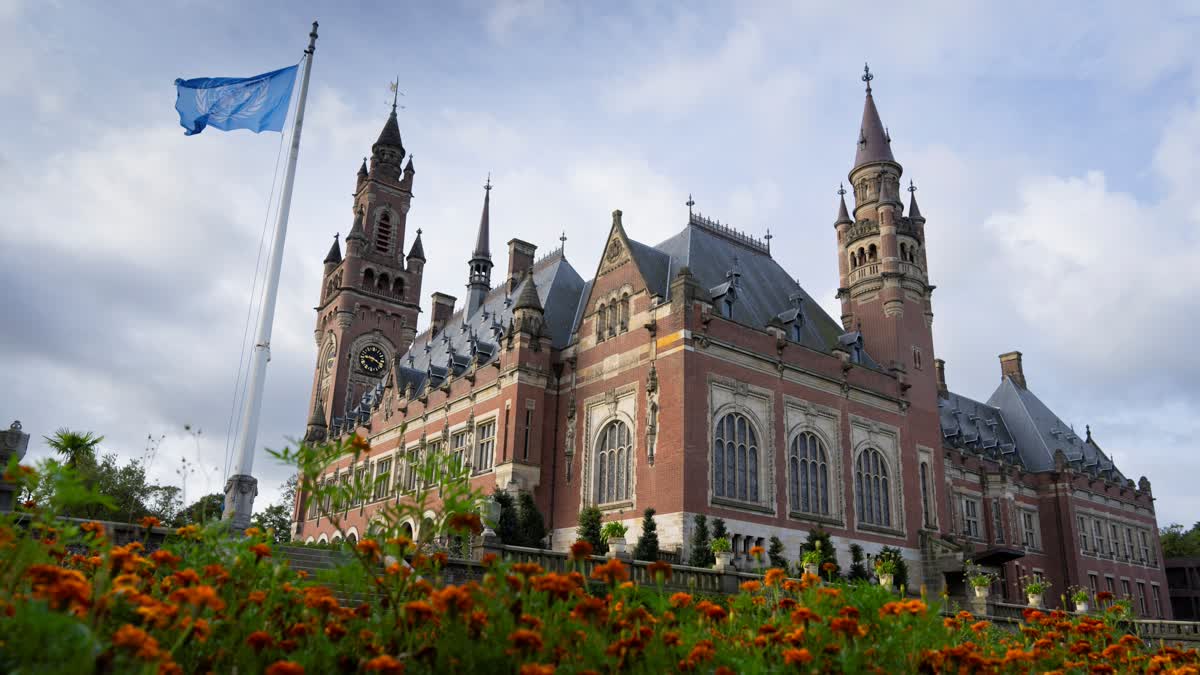The Hague:Israel will defend itself in the United Nations' highest court starting on Thursday against allegations that its military campaign in Gaza amounts to genocide.
South Africa asked the International Court of Justice to consider Israel's actions in light of the 1948 Convention on the Prevention and Punishment of the Crime of Genocide, drawn up in the aftermath of World War II and the Holocaust.
The convention defines genocide as acts such as killings committed with intent to destroy, in whole or in part, a national, ethnical, racial or religious group.
The case will likely drag on for years.
Here are some details on the case and its ramifications.
WHAT IS SOUTH AFRICA'S ARGUMENT?South Africa's 84-page filing says Israel's actions are genocidal in character because they are intended to bring about the destruction of a substantial part" of the Palestinians in Gaza.
It asks the ICJ for a series of legally binding rulings. It wants the court to declare that Israel has breached and continues to breach its obligations under the Genocide Convention," and to order Israel to cease hostilities in Gaza that could amount to breaches of the convention, to offer reparations, and to provide for reconstruction of what it has destroyed in Gaza.
The filing argues that genocidal acts include killing Palestinians, causing serious mental and bodily harm, and deliberately inflicting conditions meant to "bring about their physical destruction as a group. And it says Israeli officials have expressed genocidal intent.
South Africa argues that the court has jurisdiction because both countries are signatories of the genocide convention, whose ninth article says such disputes can be submitted to the International Court of Justice.
Many South Africans, including President Cyril Ramaphosa, compare Israel's policies regarding Palestinians in Gaza and the West Bank with South Africa's past apartheid regime of racial segregation. Israel rejects such allegations.
WHAT WAS ISRAEL'S RESPONSE?Israel's government swiftly denounced the genocide claim. The Foreign Ministry said South Africa's case lacked a legal foundation and constitutes a despicable and contemptuous exploitation of the court.
Eylon Levy, an official in the Israeli prime minister's office, accused South Africa of giving political and legal cover to the Oct. 7 attack by Hamas that triggered Israel's campaign, and said Israel would send a legal team to the Hague "to dispel South Africa's absurd blood libel.
An Israeli official said the country, which has a history of ignoring international tribunals, decided to defend itself for several reasons. Among them are Israel's role in promoting the original genocide convention after the Holocaust and the nation's belief that it has a strong case. He spoke on condition of anonymity because he was discussing behind-the-scenes deliberations.
Israeli Prime Minister Benjamin Netanyahu has vowed to press ahead with the war until Hamas is crushed and the more than 100 hostages still held by the militant group in Gaza are freed. He's said that could take several more months.
HOW DID ISRAEL REACT TO EARLIER COURT PROCEEDINGS?Israel did not attend hearings in 2004 when the ICJ discussed an advisory opinion requested by the UN into the legality of Israel's barrier wall. The court ruled in a non-binding opinion that the wall was contrary to international law. Israel sent a written statement to the court before the ruling saying it did not consider it to have jurisdiction and should not respond to the UN request for the advisory opinion.
Israel also has in the past refused to cooperate with an investigation after the 2008-9 Gaza war, a UN investigation into the 2014 Gaza war, and the ongoing Human Rights Council investigation into alleged abuses against Palestinians.
Israel is not a member of another Hague-based court, the International Criminal Court. Other countries that are not ICC members include major global powers the United States, China and Russia.
WHAT HAPPENS NEXT?South Africa's filing includes a request for the court to urgently issue legally binding interim orders for Israel to immediately suspend its military operations in and against Gaza.
Such orders, known as provisional measures, would remain while the case progresses. They're legally binding but not always followed. In 2022, in a genocide case filed by Ukraine against Russia, the court ordered Moscow to immediately suspend its invasion, but the order was ignored.
The court is the highest judicial body of the United Nations but it does not have a police force to implement its rulings. If a nation believes another member has failed to comply with an ICJ order, it can report that to the Security Council.
